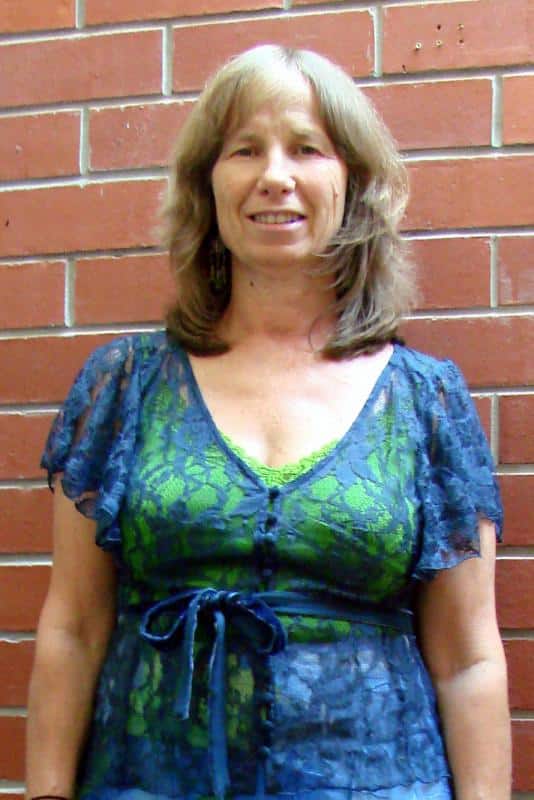
Dr Ava Ruth Baker
20 March 2017 – Ava Ruth Baker (MB ChB Dip Health Sci – Mental Health) is an autistic medical practitioner specialising in autism and mental health. As the only NZ-based member of the Autism CRC Research Academy, she is actively engaged in, and available for, autism research co-production projects. Shouldn’t the slogan “Nothing about us without us” apply to autism research too? asks Dr Ava Ruth Baker.
The exciting news is that the phrase ‘Nothing about us without us’ is finally catching on when it comes to autism research, albeit slowly.
So far in only a few centres overseas, a leading one being Autism CRC (The Cooperative Research Centre for Living with Autism), who handle the majority of Australian applications for autism research funds.
‘Co-production’ is now one of their main criteria for approval.
In ‘research co-production’, also known as ‘peer research’, researchers and autistic adults work together as peers, to ensure that what is being researched, and how, is “relevant to, and appropriate for, those on the spectrum and their communities. Expertise gained through lived experience, and research skills, are equally respected and valued. (Autism CRC, 2016a)
Though the potential benefits of research co-production is now acknowledged in the academic literature (e.g. McDonald & Raymaker 2013; Pellicano et al 2014), there’s also evidence of “resistance by researchers to engage in co-production with people on the spectrum” (Autism CRC, 2016a).
There are a number of programmes and downloadable resources available to facilitate autism-friendly research. They include:
Training in co-production for researchers and autistic adults
In 2015 Autism CRC established a Research Academy offering training to “upskill both autistic adults and existing scholars to be able to work together as peer researchers” (Autism CRC, 2016a). I was delighted to be accepted into their inaugural training and would thoroughly recommend it!
Inclusive Research Practice Guides and Checklists
This world-first set of guides and checklists was co-produced by Autism CRC “to help researchers be more inclusive at all stages of commissioning, undertaking research and disseminating, evaluating and utilizing findings” (Autism CRC, 2016a)
Visual dictionary of research terms
(Autism CRC, 2016c): a co-produced visual dictionary to explain common research terms for those who prefer visual language.
References
Autism CRC (2016a) Autism CRC Research Academy Report http://www.autismcrc.com.au/reports/autism-crc-research-academy-report
Autism CRC (2016b) Inclusive research guides and checklists http://www.autismcrc.com.au/inclusive-autism-research
Autism CRC (2016c) Visual Dictionary of Research Terms http://www.autismcrc.com.au/download/1175/Visual%20Dictionary%20of%20Research%20Terms%20Final.pdf?redirect=node/559
McDonald, K.E., & Raymaker, D.M. (2013). Paradigm shifts in disability and health: toward more ethical public health research. American Journal of Public Health, 103 (12), 2165-2173.
Pellicano, E., Dinsmore, A., & Charman, T. (2014). Views on researcher-community engagement in autism research in the United Kingdom: a mixed-methods study. PLoS One, 9(10), e109946.doi: 10.1371/journal.pone.0109946.
Open letter to researchers: autistic dissatisfaction with current practice
We autistic members of the Autism CRC Research Academy feel strongly, as a group, that our prior experience with research projects and researchers has been more negative than positive. As a result we wrote an open letter to researchers detailing what we had experienced, and what we need from them:
“To increase positive experiences of research participation we need:
- communication on both sides – a willingness to really understand what we are saying and a willingness to adapt communication strategies to meet our needs;
- explanations that we can understand in a format that makes sense to us;
- to be treated individually and flexibly, not based on a stereotypic view of autism; and,
- to know how to give researchers feedback and be honest about our experiences
To help ensure our effective participation we need researchers to:
- ask us questions instead of assuming what we might mean (e.g. asking us “what do you mean by that?”);
- understand that we may need support, such as from an advocate / buddy / mentor to help us get our message across during interviews or research sessions;
- enable us to have something written to help us respond to questions so we can read or use this if necessary, this can be facilitated by providing questions ahead of time, so that we can consider our responses rather than being put on the spot.”
Concluding “We are keen to engage as peers with autism researchers, to be involved in research teams, advisory groups and provide feedback on research tools and approaches.”
(Autism CRC 2016a, Appendix D)
This article was first published in Altogether Autism Journal Issue 1, 2017 read the latest edition.


